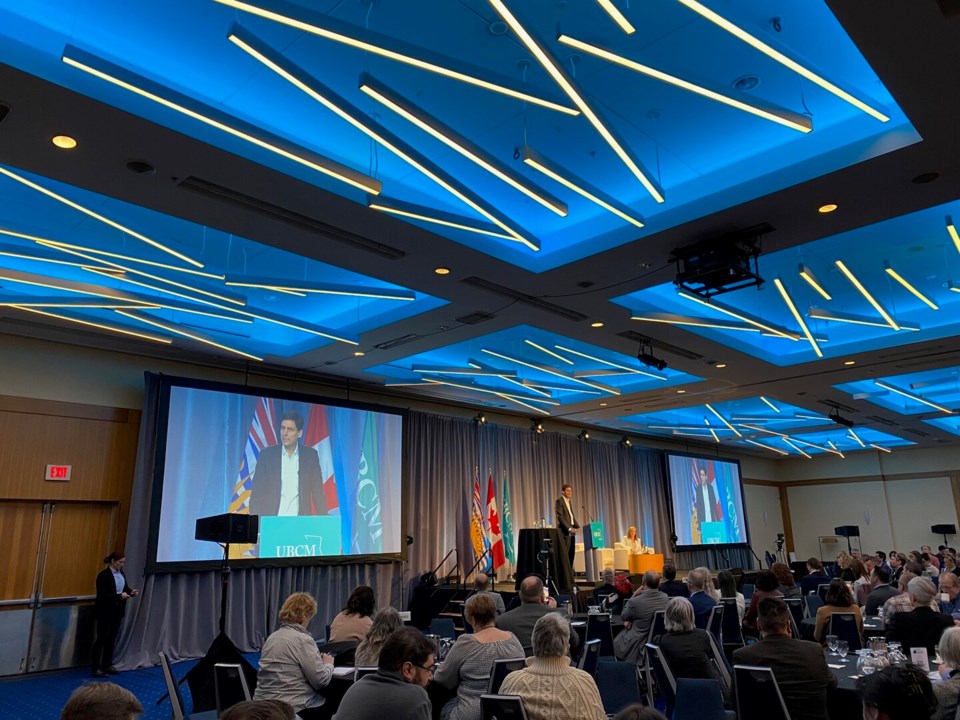The B.C. premier says the Growing Communities Fund — $1 billion funnelled to municipalities to help with infrastructure needs — is an example of what the province would like to continue to do to support local governments as cities expand.
Premier David Eby appeared at a Union of B.C. Municipalities housing summit held in Vancouver on Wednesday afternoon, sitting down for a question and answer session with UBCM President Jen Ford.
Ford asked Eby if he would be open to “negotiating a new fiscal relationship” with local governments in order to fund the infrastructure needed to support an increase in housing.
Some local government officials have said stable infrastructure funding is necessary to ensure their communities can support more density, in light of the province’s recently announced intentions to make zoning changes encouraging more houseplexes and townhomes on single-family lots.
“I hope you've seen already from our government our willingness to support local governments,” Eby replied.
“What we’d like to do is tie the growth that you're seeing with funding from the province. We want you to see in your communities the benefits of growth, and that’s not always the case,” Eby said.
“People see fast-growing communities, they see schools that are challenged with portables, they see issues around healthcare and so on, but they don’t often see the other side of the equation — where you see a community not growing, or in fact shrinking.”
He noted such a community also brings challenges.
“We see the way forward in this province is certainly around growth, around welcoming people to British Columbia, but part of that is around making sure that municipalities are supported,” Eby said.
“The Growing Communities Fund is an example of what we’d like to continue to to do, in making sure you have the essential infrastructure.”
In an address to the hundreds of UBCM summit attendees, largely elected officials and city staffers from across the province, Eby emphasized the importance of working in partnership to tackle the housing crisis.
Eby said municipalities and regional districts have been asked to identify properties that may be available for affordable, attainable, middle-income housing projects.
“I urge you to work with your local councils, work with your staff on identifying that property, that inventory will be essential for us in the work that we have to do ahead,” Eby said.
Ford asked Eby if governments can encourage health authorities and school districts to add housing units to their buildings.
In response, Eby applauded the town of Ladysmith, noting he recently saw a schematic for a new civic building which included units of housing on top.
“Local governments are taking that initiative, school districts can take that initiative," he said. "I think that really reflects that all-hands-on-deck nature of the challenges that we face."
The premier said the province’s recently released Homes for People plan — which commits $12 billion over a decade to help bolster the construction of more homes and curb speculation, among other measures — has the potential to bring “really significant and positive impacts.”
He hearkened to how communities and governments worked together to weather the COVID-19 pandemic and climate challenges like 2021's atmospheric river.
"If we keep working together this way, if we learn our lessons that we picked up through the pandemic, we can address any crisis, including the housing crisis," Eby said.
"We can build a province where everyone has a decent place to live, and no one gets left behind."




